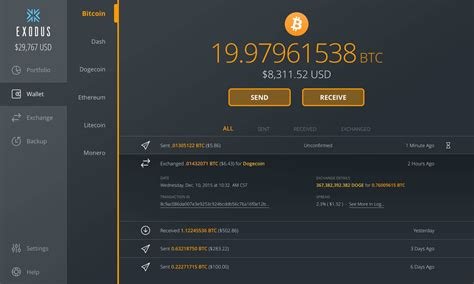Ethereum: Can I Have One Wallet for All Coins?
As a newbie to trading cryptocurrencies like Bitcoin (BTC), Litecoin (LTC), and Ethereum (ETH), you’re probably curious about managing your digital assets. While it’s tempting to combine all your coins into one wallet, the reality is that having multiple wallets is not only possible, but also recommended for security and flexibility.
Why Multiple Wallets Are Necessary
Having multiple wallets allows you to independently manage your assets, which can be especially useful when trading or investing in different cryptocurrencies. This approach ensures that each coin is safe and isolated from potential losses on other platforms.
In the case of Ethereum (ETH), there are three main wallets that provide access to various ERC-20 tokens (e.g. ETH, ERC-20-based tokens such as dAI, UNI, etc.). These wallets offer unique features, convenience, and security, making it essential to have separate wallets for each coin.
Three Major Ethereum Wallets
- MetaMask: MetaMask is the most widely used Ethereum wallet, offering a wide range of features, including support for ERC-20 tokens. It is also compatible with several blockchains, including Binance Smart Chain and Optimism.
- Ethereum CLI (Command Line Interface): The Ethereum CLI allows you to interact directly with your Ethereum account using a command line interface. This is useful when you need more control over your wallet or prefer a more manual approach.
- MyEtherWallet

: MyEtherWallet is another popular alternative for managing Ethereum assets, offering advanced features such as key management and asset protection.
Additional Wallets (Optional, but Recommended)
While MetaMask is the primary Ethereum wallet, additional wallets can add security and flexibility:
- Local Eth Wallet: A local Ethereum wallet allows you to store ETH offline, which is useful when trading on platforms that do not support online access or when using decentralized exchanges (DEXs) that require a local wallet.
- Trust Wallet: Trust Wallet is another popular Ethereum asset management alternative that offers advanced features such as key management and asset protection.
Conclusion
Having a single wallet for all types of coins can lead to:
- Security risks: If you lose access to one wallet, it can also affect other wallets.
- Lack of flexibility: Consolidating all coins into one wallet can limit your trading or investment options.
In summary, having multiple Ethereum wallets is essential for managing your assets securely and flexibly. By choosing a primary wallet (MetaMask) and secondary wallets (Local Eth Wallet and Trust Wallet), you can ensure that each coin remains secure while still benefiting from the features of other platforms.
Tips and Recommendations
- Start with MetaMask: As the most widely used Ethereum wallet, it is a great choice for beginners.
- Explore alternative wallets: MyEtherWallet, Local Eth Wallet and Trust Wallet offer advanced features that may suit your needs.
- Protect each wallet: Use strong passwords, enable 2-factor authentication (2FA), and keep your wallet software up to date to reduce the risk of unauthorized access.
By having multiple wallets, you will be better equipped to manage your Ethereum assets safely and efficiently, and you will also enjoy flexibility when trading or investing in various cryptocurrencies.

